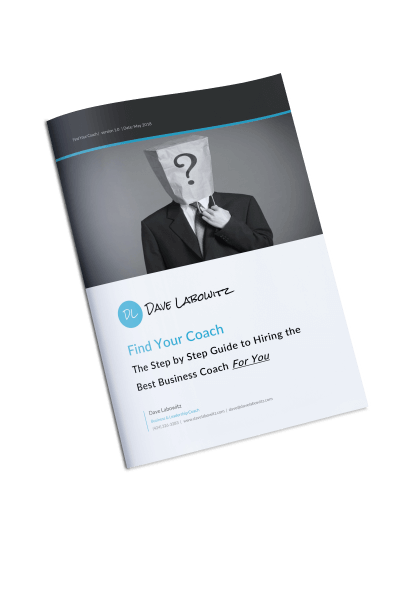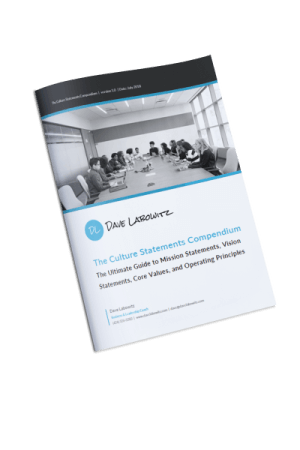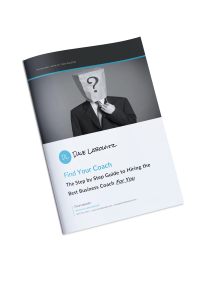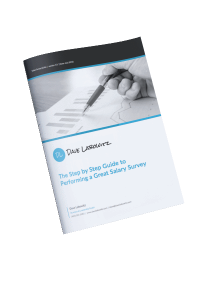Is it harder than it used to be to scale your business?
If your small business isn’t so small anymore and you’ve landed on this page, it’s probably because scaling your business has gotten more challenging the larger it’s grown. At some point, your revenue growth will slow down. The complexities of managing a larger team of employees and/or vendors will rear their heads. Cash management will require more of your time and thought. Making decisions will require more data and it may seem like there’s both too much data and not enough at the same time.
The hours you’ve been committing to your business are probably out of control. Your stress level may be high and rising. You’ve taken a few hits: you lost a client or prospect, a team member quit or needed to be let go, a vendor didn’t work out and cost you a bunch of money. Perhaps, somewhere along the way, your confidence has started to flag and your frustration has started to climb, leaving decision-making even harder. And, with so much to do each day, it may seem like you’re actually less productive than ever. Maybe even your motivation has started to slip.
"I don't know what they want from me
It's like the more money we come across
The more problems we see"
If you stay on your current path, you fear your business will stagnate or, even worse, fail entirely.
Sound familiar? Don’t worry! This happens to everyone. But why?
Simply, the strategies and skills needed to grow your business to ~$500k in revenue are very different from those needed to scale your business into the millions. The things you did to reach success so far will need to evolve if you want your business to continue scaling.
But what does business success really look like?
Everyone has a different definition of success, but there are commonalities. How does this sound?
- Your revenue and profit are growing at a rapid rate
- You’re working less hours and carrying less stress
- Your team members and vendors are hitting and exceeding your expectations
- You understand your finances and have clean books
- You’re making data-driven decisions with confidence
- You’ve mastered your time-management and productivity
- You’re excited, engaged, and enjoying the journey
- You’re comfortable with your long-term strategy and see a continued path that makes sense
- Your business has turned into a mechanism for personal growth; you’re learning and evolving as a leader
Is business coaching worth it?
I’m not the salesy type; I’m more interested in explaining business coaching so you can make your own decision. If you’re wondering whether coaching will be worth it for you, consider this analogy.
Scaling your business into the millions in revenue is like climbing Mt. Everest. You’ve gotten to basecamp, but only a chosen few reach the summit. Hiring a business coach is like hiring a sherpa to help you on the climb. It’s possible to summit without help… but almost everyone hires a sherpa because it increases the chance of success.
The sherpa has been there before. They understand the routes that tend to work and the risks of each. Their feedback can prevent you from tumbling off a cliff you didn’t even see. It doesn’t matter if you reach the summit with or without a sherpa… just that you reach the summit.
Is a sherpa an extra expense? Sure, of course it is. But consider this article on the costs of climing Mt. Everest: a sherpa costs $5,000. The rest of your trip to Everest costs $55,000. Hiring a sherpa is arguably the best thing you can do to increase your chances of making the summit. And the incremental cost is a drop in bucket of your entire budget. It is better to blow $55k in the hope of saving $5k? Most people would say no.

The cost of scaling your business will be a far bigger expense than $55k… so why go it alone if it just increases the risk of failure? The only reason I can see is the fear of hiring an incompetent sherpa. No one wants to be led off a cliff on Everest! That’s why you should make sure your sherpa is highly qualified.
What makes a business coach the perfect sherpa?
There are two areas in which a business coach must excel:
1. A deep, experienced background in actually scaling businesses
A huge part of the value of business coaching is being able to apply your coach’s experience to your own situation. This helps you avoid mistakes that cost you time and money, gives a boost to your creativity and helps pressure-test ideas, and saves you from having to learn some hard lessons the hard way. If your business coach hasn’t been there and done it then they’re just a rookie sherpa… and I wouldn’t hire a sherpa who had never climbed Everest.
2. Facilitation skills and a high EQ
Business coaching isn’t just about getting advice on brass tacks strategies and tactics. In fact, as you scale you’ll probably spend 75%+ of your energy on “the people stuff”. The people in question include your team members, customers, stakeholders, and most importantly, you.
A great business coach will be an expert at asking the right questions and listening deeply. They’ll have the emotional capabilities to understand and empathize with the feelings you share with them. When you’re struggling to find your truth on something confusing, they’ll help you focus on the right aspects of the issue until you find your path. When you’re working on how to approach a challenging situation or conversation with another person, they’ll have the skills to mirror back what your approach shows as well as what the likely effect will be on someone else.
If a business coach is lacking in either of these two areas, they’re not really a business coach. If they don’t have the necessary business experience but are strong in facilitation and EQ, then they’re really a life coach, or if they have the requisite degree, a therapist.
If they have great experience scaling businesses but are lacking facilitation skills and EQ then they’re really just a business consultant.
So why work with me?
First, as a 4x business executive in venture-backed startups, I have over 15 years of leadership experience scaling successful companies. You can read more on my professional bio here. I believe this sets me apart as the business coach with the most experience in successful startups.
Additionally, during my career, I fell in love with the study and practice of entrepreneurial leadership. I’ve attended over 600 hours of leadership training, peer groups, professional coaching, and personal growth workshops. I’ve also read and listened to hundreds of books and podcasts on the topic. As a coach, I leverage the blend of life experience I had during my “path less traveled” life and all of my training to help you find your deepest truths in every situation business throws your way. Figuring yourself out is one of the highest-value pursuits for any entrepreneur, or person, for that matter!

Finally, I’m committed to being easy to work with. This primarily means two things: First, I don’t expect any kind of commitment from you other than a commitment to following through on your own action plans! Many coaches will try to sell you multi-session packages with a line like, “If you don’t commit to a certain amount of coaching, then you’re really not that committed to yourself!”
I don’t think this is good for clients. Coaches who behave this way are more interested in their own bottom line than in supporting you. With me, you can do as many or as few sessions as you’d like. I have some clients I work with weekly and others who pop up for a single session a few times a year. After all, your business and life needs are constantly changing… so why wouldn’t your coaching needs be changing, as well? Second, I’m not trying to funnel you into pre-built programs on scaling your business; I just offer custom-tailored coaching. While there are certainly similarities in many businesses, they’re all unique on some level. When we coach together we’ll work specifically on the challenges you’re dealing with in that moment; no need to work from a preset curriculum.
What are we actually going to do together?
Let’s break this down into two parts: structure and topics.
Here’s how my business coaching calls are structured:
- At the beginning of each session, we’ll set a clear goal: What do you want to accomplish by the end of the session? This clarity is a big part of where the ROI in coaching comes from. This takes roughly the first 15 minutes of each session.
- During the session, we will discuss the challenge/s you’re working on. This conversation will be a blend of the following approaches.
- Facilitation: I will ask clarifying questions to help you find truth and insight. The goal of many of these questions is to help you see things from new perspectives.
- Problem-solving: This is a collaborative process to come up with potential solutions to your challenge. My goal is to engage your creativity to come up with many workable ideas. Then we can discuss how to implement the best ones.
- Mentoring: As questions come up I will share things I’ve learned throughout my executive career to help aid your decision-making.
- At the end of each session, the last 15 minutes will be about creating accountability (read: homework). What will you accomplish before we meet again? What are the first actions you will take? How will you measure your progress? If necessary, what reward/penalty will you get for your performance? The goal of this part of the call is to make it easy for you to launch into action immediately afterwards.
Here are some examples of the type of topics we may work on together:
- Refining your messaging so it lands perfectly with your ideal customer avatar
- How to structure and track a new type of sales campaign
- How to qualify and engage a great marketing vendor
- Preparing for a difficult conversation (employee, customer, investor, board meeting, family member in the business)
- How to structure your org chart for scalability
- Finding solutions to operational challenges
- How to set up a budget and track variances over time
- Optimizing an investor pitch or deck
- How to productize and market your service
- Optimizing your time management and productivity
- Working through personal blocks; stress, confusion, lack of clarity
- Setting the right priorities
- Selecting KPIs and metrics for your company, departments, and/or team members
- Talking through things you can’t discuss with anyone else
This is by no means an exhaustive list, just some examples of common topics. If you have questions about how we can handle specific topics, let’s discuss what’s on your mind. Here’s my calendar link to book a free 30-minute discovery call.
A note on coaching style
I get a lot of questions like, “Do you give advice?” and “How will you challenge me?” These are great questions and common hot-button topics in coaching circles. Every coach will have a slightly different take on what’s best. Here’s mine:
I rarely give advice in the form of “Do X,” because there is rarely only one, clear-cut answer to a business challenge. And, if it seems like there’s only one answer, we’re probably missing something and I don’t want to steer you wrong. Instead, what I’ll normally say, after we’ve discussed a challenge, is something like, “If it were me, I’d consider X, Y, or Z because of these reasons...”
For instance, I prefer Wordpress for building websites because of its tremendous power, extensive ecosystem of plugins and support, and low comparative cost. However, if you’re less techy than me, aren’t comfortable dealing with a web host, and don’t want to commit yourself to hiring someone else to build and modify your site, something like Wix or Squarespace may make more sense for you. We can discuss the merits of each solution and then you can make an informed decision as to which fits you best. The goal is for you to reach the best decision for you.
There is a saying, “Give a person a fish and you feed them for one night; teach a person to fish and you feed them for a lifetime.” My approach to coaching is about teaching you to fish, not giving you a fish.
As to how I’ll challenge you, my personal operating principle on this topic is, “Be direct, yet sensitive.” I see it as my job to make sure you go deep enough to find the right answers for you. If I sense you’re not there yet, I’ll make it clear I see there’s an opportunity for more work by asking probing questions. After all, I grew up in Philly, and we’re direct by nature!
However, it’s my job to listen to you and be sensitive to what you’re thinking and feeling. I’ll never bludgeon you with my opinion.
Finally, it’s my responsibility as a coach to adapt my style as we get to know each other. If you need me to be a bit tougher with you, or a bit more gentle with you, let me know what you prefer and I’ll adjust.
Sounds good, but where’s the proof?
You don’t need to take my word for it. I have a 5-star rating on Google and Yelp, as well as many positive reviews on LinkedIn. While I could re-post those reviews here, it’s more reliable for you to read them in their native homes where they can’t be edited. Please feel free to use the links above to view as many as you like!
My risk-free guarantee
I believe in these two fundamental truths:
- Every business decision is about weighing risk vs reward
- Business coaching can transform your business and life
If you’re interested in business coaching but unsure if you’ll get the value you’re looking for, this guarantee is for you. I'll take the risk out of the equation and leave just the reward!
Simply, if after our first session, you don’t feel like you got the value you were looking for, you don’t have to pay anything at all. I don’t want to be charging people who don’t get value any more than you want to be paying for something in which you don’t see the value!
For the record, as of the time of this writing, over three years after I started my coaching business, no one has ever taken me up on this offer. But it’s there for your peace of mind!
What’s the next step?
The next step is for us to hop on a free, 30-minute discovery call to discuss what you’re building and what your needs are. This call will give us a chance to get to know each other a bit, assess fit, and answer any questions either of us have. There’s no charge, no pressure, and no obligation to move forward beyond this call unless you want to!
Not ready to talk just yet?
If you’re intrigued, but not ready to get on a call yet, please sign up for my newsletter so we can stay in touch. I’ll send you a note when I update my blog or if I have something important to share. I don’t email often or sell your address so it’s about as non-invasive as a newsletter can possibly be.





